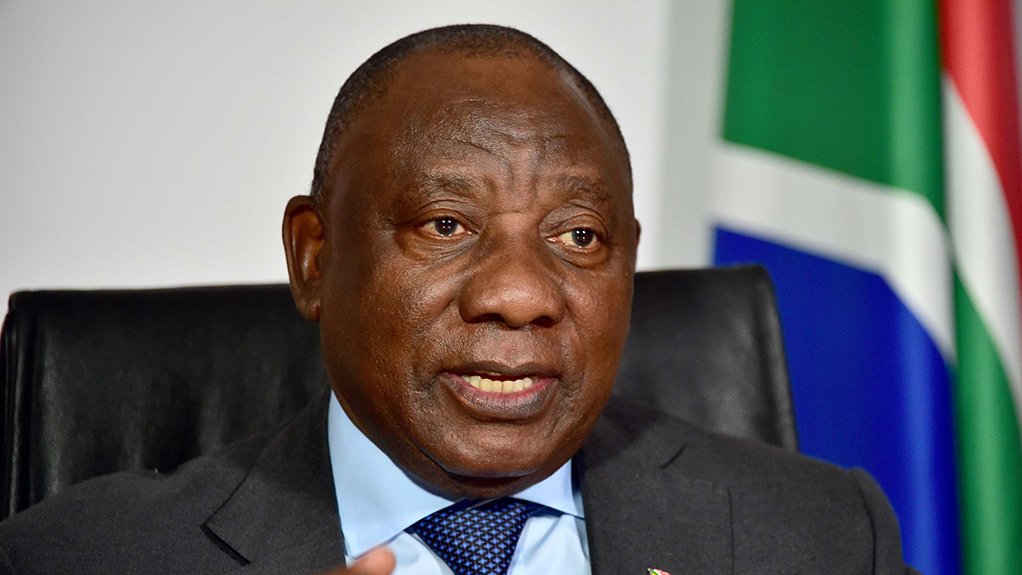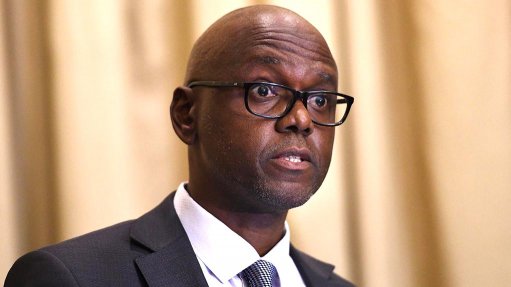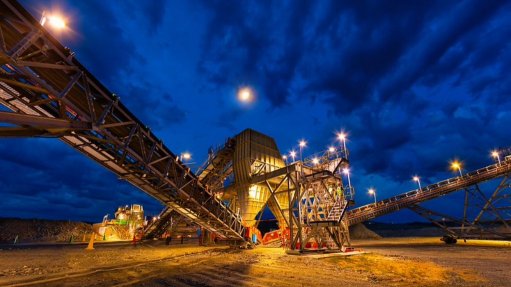Mixed reaction from business to SoNA
Business organisation Business Leadership South Africa (BLSA) CEO Busi Mavuso says business was hoping for a greater sense of urgency and stronger commitment from President Cyril Ramaphosa’s State of the Nation Address (SoNA) to accelerating both the reform agenda and infrastructure rollout.
“Overall, BLSA believes the President could have done more to address blockages to the efficient implementation of already agreed policy and didn’t go far enough to build confidence that 2022 would be the year of delivery.
“Business was hoping for another ‘big bang’ announcement of a way to break out of the inertia that seems to be bogging down both the infrastructure rollout and reforms to the energy sector,” Mavuso posits.
However, the organisation welcomes Ramaphosa’s focus on the small business sector, including a redesigned loan scheme for small businesses, which will involve development finance institutions.
“He also provided an important update on the drive to build a capable State, saying government would soon be finalising a framework for the professionalisation of the public service,” Mavuso highlights, emphasising that improving the capacity of the public sector is vital to long-term development.
Mavuso asserts that, in some areas, there were some positive elements, but also some missed opportunities.
She posits that extending the R350 a month social relief of distress grant to end-March 2023 rather than going for a “big bang” introduction of a permanent basic income grant was the sensible option.
“There is an obvious need for more extensive social welfare support. This is an area that needs careful research into the repercussions that higher tax rates and possibly increased debt levels will have on the rest of the economy,” she cautions.
Mavuso mentions infrastructure development as a disappointing aspect of the SoNA.
“No recognition was given to the core problems that are delaying the rollout of infrastructure projects. Research commissioned by BSLA found that there is still not enough expertise in the field of large infrastructure projects in the correct areas of government while its systems and approval processes are cumbersome and unnecessarily complicated because they require input from numerous different government departments,” she says.
She also points out that Ramaphosa did not mention anything new in terms of the disbursement of the $8.5-billion pledged at COP26 towards the country’s just energy transition, instead repeating the announcement of the appointment of former Absa CEO Daniel Mminele as head of the Presidential Climate Finance Task Team.
Further, she describes Ramaphosa’s response to the expert panel’s report into the unrest in July last year as strong, as it promised changes in key positions within the security cluster and that 12 000 new police personnel would be recruited.
Moreover, she says the promise that those implicated in the Zondo reports into State capture will be prosecuted is important.
Ramaphosa also announced that government was conducting a detailed review of all applicable legislation and a comparative study of other jurisdictions to strengthen whistle-blower protection.
However, Mavuso says not much was said about the structures recommended by Judge Raymond Zondo to prevent corruption in future, such as the anti-corruption agency and measures designed to prevent tender fraud, besides others.
She does, however, acknowledge Ramaphosa’s strong stance on the Special Investigating Unit’s final report on its investigation into Covid-related contracts, wherein he noted that 45 cases, with a combined value of R2.1-billion, had been enrolled with the Special Tribunal.
BLSA also welcomes the President’s establishment of multi-disciplinary units to address economic sabotage, extortion at construction sites and vandalism of infrastructure.
“We will wait to see what the President has in mind with his 100-day target to achieve ‘a new consensus to deal with poverty, unemployment and inequality’. In BLSA’s view, a social compact was achieved with the Economic Recovery and Reconstruction Plan that was agreed between all social partners last year. What matters now is implementation,” Mavuso emphasises.
North-West University (NWU) Business School economist Professor Raymond Parsons avers that the SoNA was a candid and realistic assessment of the current socioeconomic challenges faced by the country, and the urgent need to effectively address them.
He says the reaction of the business sector will be key in turning the SoNA intentions into real investment and growth, including the strong encouragement of small business.
“It is, therefore, the responsibility of government to create a policy environment which encourages the private sector to promote job-rich growth and help achieve necessary economic development. An enlarged role for the private sector was thus a welcome feature of the SoNA.
“A positive aspect of the SoNA was the wide-ranging announcement of various economic reforms and, in particular, the extent to which there is a commitment to timelines for delivery and accountability for outcomes,” Parsons states.
He emphasises that these timelines must be enforced to ensure credibility and confidence, with this required to build the investor confidence needed to unlock the country’s real economic potential and promote job-rich results.
“While it is necessary to extend the special social grant of R350 a month for another year, the long-run goal must be to move people out of welfare and into work,” Parsons says.
He notes that the big test remains to ensure the reforms announced in the SoNA and the good governance needed will now yield outcomes.
Research and consulting firm Intellidex, meanwhile, says the speech, overall, was broadly as expected and that it does not think it especially moves the dial for December.
It indicates that there was not a lot of new content in the speech, with many repetitions from last year’s SoNA.
It mentions some new areas, such as a visa category to promote elements such as remote working and startups; an admission that there will only be 800 MW from the Risk Mitigation Independent Power Producer Procurement Programme projects that are ‘ready to proceed’; confirmation that the new water independent power producer investment office bill will be published next month; and a promise for small, medium-sized and microenterprises to be able to opt out of certain parts of labour legislation.
In terms of what the speech missed, Intellidex said: “There was no mention of the xenophobic push in government for quotas on foreign workers – an issue that has concerned investors.
“We do see more xenophobic policy shifts coming, though do not see full regulatory might passing muster and expect something softer and more rhetorical from government but which will still stir problematic sentiments in parts of the populous,” it adds.
Meanwhile, the South African Chamber of Commerce and Industry also welcomed the address, especially in its affirmation of the central role and importance of the private sector.
"The private sector will assist other social partners by bringing to the fore the much-needed investment and innovation in areas such as local industrialisation, fast tracked infrastructure, sustainable commercialisation of commodities, service industries and human capital.
For a private sector led economy to thrive, government at all levels will require a material shift in institutional arrangements and work ethic on the part of the public sector institutions that are tasked with supporting economic policy and development," the chamber posits.
INDUSTRY REACTIONS
On a more positive front, industry organisation the SA Canegrowers welcomed Ramaphosa’s recognition of industry transformation efforts to support and empower small-scale growers.
“The R225-million in transformation funding, raised from grower and miller contributions, is evidence of the industry’s commitment not only to its recovery, but also to its growth and transformation, guaranteeing a future in the industry for generations to come,” the organisation says.
It notes that more will be required and, therefore, welcomes the President’s announcement that government will be expanding the provision of input vouchers to small-scale farmers with the aim of reaching up to 250 000 small-scale farmers, including the 21 000 contributing to the sugarcane value chain, in partnership with the private sector.
SA Canegrowers also emphasises the importance of government announcing the implementation of its commitments under the Sugar Industry Value Chain Masterplan, including promoting the procurement of locally produced sugar across all departments and State-owned enterprises.
Agriculture organisation the Agricultural Business Chamber of South Africa (Agbiz), meanwhile, lauds the “pragmatic” approach of SoNA and notes its readiness to partner for inclusive growth and job creation.
“The recognition that an enabling environment for business is critical for attracting investment and helping to solve the unemployment and low economic growth challenge in South Africa is significant,” says Agbiz chairperson Francois Strydom.
He notes that the agribusiness sector is ready and willing to partner with government to take these initiatives beyond rhetoric and translate it into action.
Agbiz CEO Theo Boshoff highlights the infrastructure focus as particularly notable, as a large share of South Africa’s agricultural products is transported by road, and the country exports about half of the produce of the country in value terms.
As far as the specific interventions are concerned, the focus on rural logistics infrastructure, water, cross-border trade and immigration speaks to the importance of agricultural value chains within the South African economy, Agbiz notes.
From a policy point of view, it welcomes the commitment to reduce red tape, but emphasises the need to follow up with concrete action.
Meanwhile, Greenpeace Africa climate and energy campaigner Nhlanhla Sibisi says that while the organisation welcomes the President's reaffirmed commitment to procuring renewable energy capacity under Bid Window 5, he must not be under any misconceptions that gas power will light South Africa's future.
“Gas will only lock South Africa into a high emissions trajectory and derail our commitments under the Paris Agreement. Hydrogen is not the answer either. The best and most immediate solution to South Africa's problems is a just transition to renewable energy. It's that simple,” Sibisi emphasises.
Greenpeace Africa also welcomes the steps taken to unbundle power utility Eskom, as well as that renewables will be playing a bigger role in the energy mix.
Sibisi, however, disagrees with Ramaphosa that the country’s climate commitment are ambitious enough, saying that while South Africa's Nationally Determined Contribution has improved, it is still insufficient.
Mining organisation Minerals Council South Africa, meanwhile, has welcomed commitments to stimulate the economy, but urged speedy implementation to avert an economic crisis.
The council highlighted wide-ranging measures unveiled by Ramaphosa to bring private participation into the generation of electricity, onto the railways and into the ports to make the provision of these services more productive.
It also says the appointment of Sipho Nkosi, a former president of the then-Chamber of Mines, to head a team in the office of the Presidency to cut red tape in government departments is critical to removing obstacles to investment.
“There are more than 4 000 mining and prospecting rights within the Department of Mineral Resources and Energy awaiting approval. Minerals Council members have R30-billion in approved capital projects that could proceed quickly if these outstanding prospecting, mining and related licences are resolved quickly,” Minerals Council CEO Roger Baxter stresses.
The council notes that iron-ore, coal, chrome and manganese miners have experienced increasingly severe disruptions to their export logistics because of rail operator Transnet’s inability to provide a reliable rail and port service owing to rampant crime on its railways and the unavailability of locomotives.
It says Ramaphosa’s comments about bringing private investors into the Durban and Ngqura container terminals and private train operators on the container railway line between Durban and Johannesburg are a step in the right direction.
However, for the mining industry, the railways and ports servicing companies exporting bulk minerals need urgent attention and private sector participation to deliver efficiencies and productivity is urgently needed.
Comments
Press Office
Announcements
What's On
Subscribe to improve your user experience...
Option 1 (equivalent of R125 a month):
Receive a weekly copy of Creamer Media's Engineering News & Mining Weekly magazine
(print copy for those in South Africa and e-magazine for those outside of South Africa)
Receive daily email newsletters
Access to full search results
Access archive of magazine back copies
Access to Projects in Progress
Access to ONE Research Report of your choice in PDF format
Option 2 (equivalent of R375 a month):
All benefits from Option 1
PLUS
Access to Creamer Media's Research Channel Africa for ALL Research Reports, in PDF format, on various industrial and mining sectors
including Electricity; Water; Energy Transition; Hydrogen; Roads, Rail and Ports; Coal; Gold; Platinum; Battery Metals; etc.
Already a subscriber?
Forgotten your password?
Receive weekly copy of Creamer Media's Engineering News & Mining Weekly magazine (print copy for those in South Africa and e-magazine for those outside of South Africa)
➕
Recieve daily email newsletters
➕
Access to full search results
➕
Access archive of magazine back copies
➕
Access to Projects in Progress
➕
Access to ONE Research Report of your choice in PDF format
RESEARCH CHANNEL AFRICA
R4500 (equivalent of R375 a month)
SUBSCRIBEAll benefits from Option 1
➕
Access to Creamer Media's Research Channel Africa for ALL Research Reports on various industrial and mining sectors, in PDF format, including on:
Electricity
➕
Water
➕
Energy Transition
➕
Hydrogen
➕
Roads, Rail and Ports
➕
Coal
➕
Gold
➕
Platinum
➕
Battery Metals
➕
etc.
Receive all benefits from Option 1 or Option 2 delivered to numerous people at your company
➕
Multiple User names and Passwords for simultaneous log-ins
➕
Intranet integration access to all in your organisation




















